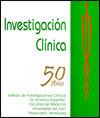Evaluación del desempeño cognitivo en escolares y adolescentes con diabetes mellitus tipo 1.
IF 0.1
4区 医学
Q4 MEDICINE, RESEARCH & EXPERIMENTAL
引用次数: 0
Abstract
The study aimedto evaluate the cognitive functioning of children and adolescents with type 1 diabetes mellitus (T1DM) recruited from the IAHULA Endocrinology Outpatient Unit and to compare it to that of non-diabetics as to investigate the influence on cognition of factors re-lated to the disease. An analytical, cross-sectional observational study was carried out on a group of 30 patients with T1DM between 8 and 16 years of age and on a control group of 30 individuals matched by age, gender, education, and socioeconomic status. Interrogation and review of medi-cal records to obtain data on the clinical characteristics and treatment of T1DM were conducted. The WISC IV test was then applied to evaluate cognition and intellectual coefficient (IQ). The average age of the diabetic patients was 13.27±2.31 years, and half of them were male. Lower scores were found in the different domains of the WISC IV in the group with T1DM (p<0.01). The IQ was found to be lower in children with T1DM than in con-trols (75.47±13.87 vs. 88.57±11.06; p=0.0001). Likewise, a higher fre-quency of IQ scores below the 10th percentile was observed in the diabetic children (63.3% vs. 33.3%; p=0.02; Odds ratio: 3.45; 95%CI: 1.19-9.99). It was concluded that T1DM negatively impacts the cognitive performance of children and adolescents. Cognitive evaluation of these patients is recom-mended, as it could affect their daily life.评估患有1型糖尿病的学童和青少年的认知表现。
本研究旨在评估从IAHULA内分泌门诊招募的1型糖尿病(T1DM)儿童和青少年的认知功能,并将其与非糖尿病患者的认知功能进行比较,以探讨与该疾病相关因素的认知影响。对30名年龄在8 - 16岁之间的T1DM患者和30名年龄、性别、教育程度和社会经济地位相匹配的对照组进行了一项分析性、横断面观察性研究。对医疗记录进行询问和审查,以获得有关T1DM的临床特征和治疗的数据。然后采用WISC - IV测试评估认知和智力系数(IQ)。糖尿病患者的平均年龄为13.27±2.31岁,男性占一半。T1DM组WISC IV各域得分较低(p<0.01)。T1DM患儿的智商低于对照组(75.47±13.87∶88.57±11.06;p = 0.0001)。同样,在糖尿病儿童中,智商得分低于第10百分位的频率更高(63.3%比33.3%;p = 0.02;优势比:3.45;95%置信区间:1.19—-9.99)。结论:T1DM对儿童和青少年的认知表现有负面影响。建议对这些患者进行认知评估,因为这可能会影响他们的日常生活。
本文章由计算机程序翻译,如有差异,请以英文原文为准。
求助全文
约1分钟内获得全文
求助全文
来源期刊

Investigacion clinica
MEDICINE, RESEARCH & EXPERIMENTAL-
CiteScore
0.20
自引率
50.00%
发文量
2
审稿时长
>12 weeks
期刊介绍:
Estudios humanos, animales y de laboratorio relacionados con la investigación clínica y asuntos conexos.
 求助内容:
求助内容: 应助结果提醒方式:
应助结果提醒方式:


